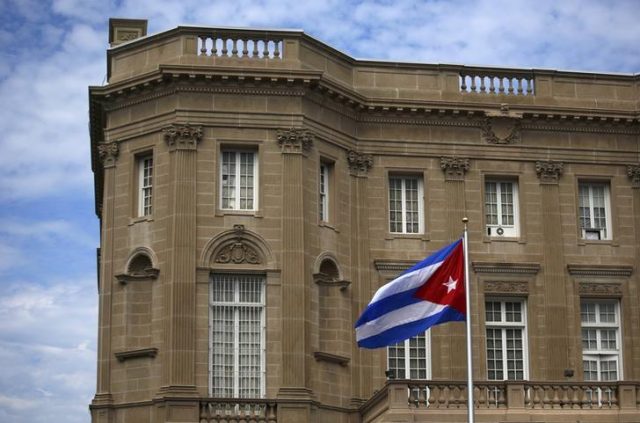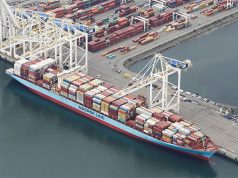HAVANA — The Cuban diplomats expelled from the United States this week included all those dealing with U.S. businesses, Cuba’s embassy in Washington told Reuters on Thursday, dealing another blow to bilateral commercial ties.
In an escalating crisis between the Cold War foes, the Trump administration on Tuesday expelled 15 diplomats to protest Communist-run Cuba’s failure to protect U.S. embassy staff in Havana from a mysterious spate of alleged health attacks.
“Due to this decision, the activities developed by the Economic and Trade Office of the Embassy of Cuba to the United States … will be seriously affected,” one Cuban diplomat said in a farewell message to a U.S. group that takes investors to the Caribbean’s largest island.
The Cuban embassy is often the first step in the process for U.S. companies to explore opportunities and make a pitch. Officials help them submit a trip proposal, seek out counterparts at state-owned enterprises in the centralized economy, and receive a business visa to travel to Havana.
Whether the embassy will still be issuing such visas remains unclear, given one diplomat will remain in the consular section.
On the American side, the downgrade of the U.S. embassy — Washington last Friday ordered the departure of all non-emergency staff — will likely make it harder for U.S. companies to find their way in Cuba.
“It’s the chilling effect of a diplomatic crisis,” said Pedro Freyre, a Cuban-born attorney who heads the international practice at law firm Akerman.
Some U.S. companies may choose to stay on the sidelines until relations improve, he said, adding that his clients already pursuing opportunities in Cuba were staying the course as they saw it as a long-term play.
U.S. companies flocked to Cuba in the wake of the detente former Democratic President Barack Obama agreed in 2014.
Some deals allowed by new exemptions to the decades-old U.S. embargo have come to fruition. American Airlines and United Airlines now run commercial flights to Cuba. Royal Caribbean and Carnival Corp. operate cruises there.
The original frenzy in U.S. commercial interest in Cuba was tempered by the realization that doing business in cash-strapped Cuba was difficult and even harder with a trade embargo in place.
Businesses now face a hostile stance from Republican U.S. President Donald Trump, who in June ordered tighter restrictions on travel and trade that have yet to be unveiled. Last Friday, his administration issued a warning on travel to the island.









